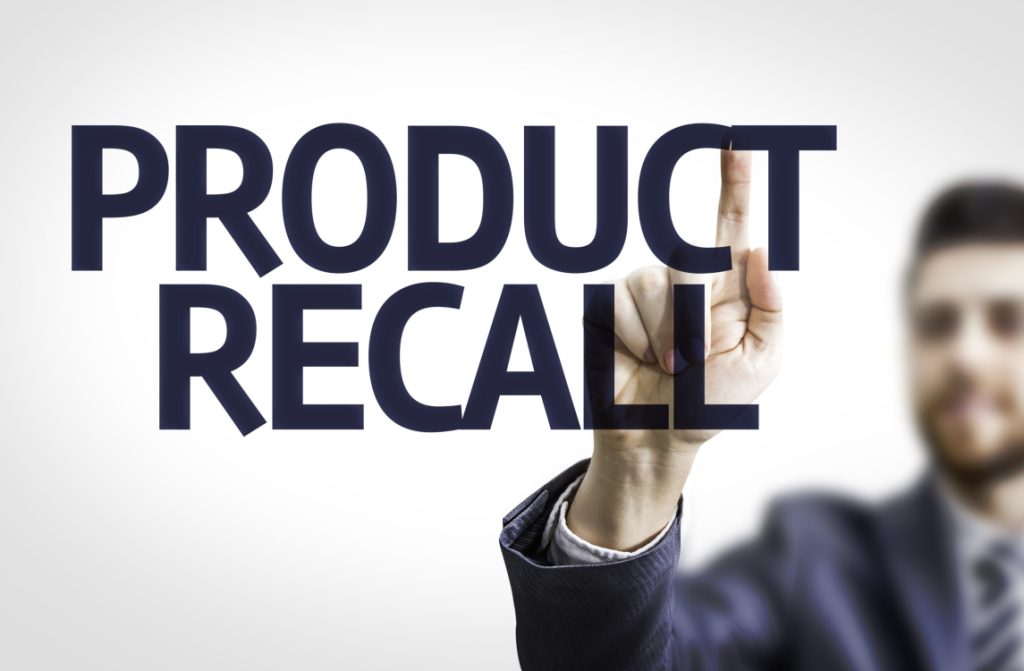- Prepare and be proactive to mitigate the risks of product recalls.
- Have a communication plan to inform customers in times of an issue.
- Hire a legal team to ensure compliance with relevant laws and regulations.
- Remain open and transparent with customers to build trust and understanding.
- Take quick action to show customers that their safety is your priority.
When products are deemed defective, a product recall is initiated in which companies or manufacturers must replace and repair the goods at their own expense. Unfortunately, this process can damage a company’s reputation and result in substantial monetary losses.
Small businesses without strong cash flow or brand recognition often find it challenging to overcome recalls. At the same time, larger corporations with more resources are generally better prepared to navigate these challenging situations without enduring any long-term effects.
A product recall can be a nightmare for any business. However, it is something that all businesses must be prepared to handle should the need arise. It’s essential to have a plan to minimize the impact of a recall and ensure that your customers are safe. Here are some tips on how to effectively manage product recalls.

Be Proactive and Prepared
The best way to deal with a product recall is to be proactive and prepared beforehand. This means thoroughly testing products before they are released, researching suppliers, and having a system to identify potential issues before they become widespread. It also means having an effective communication plan so customers can be informed quickly about an issue with a product or service.
Address Customer Complaints
It’s also essential to have a process for quickly and effectively addressing customer complaints or issues with the product. This could include issuing refunds, repairs, replacements, or other forms of compensation. Taking these proactive steps will reduce the possibility of a recall and ensure that customers are satisfied should one occur. By being prepared, companies can help ensure product recalls are handled efficiently, and customers remain loyal.
Legal Representation
You should also hire a legal team to help you navigate any potential legal issues arising from a product recall. Having a team of experienced professionals on hand can provide the necessary guidance and advice to ensure that your company complies with all relevant laws and regulations. If necessary, you should look for a reputable corporate litigation lawyer to help you deal with civil lawsuits from the product recall.
Be Open and Transparent
When dealing with a product recall, it’s essential to remain open and transparent with customers so that they understand the situation and can make informed decisions. This means being honest about what went wrong, why it happened, and how you work to solve the issue without making excuses or shifting blame onto other parties.
Customer Confidence
Customers must feel confident that their safety is their top priority. This can be achieved by providing clear and timely updates, addressing inquiries quickly and accurately, and listening to customer feedback. Additionally, it’s essential to have a plan for moving forward after the recall is over so that customers don’t feel forgotten or taken advantage of. By creating a safe space for communication, transparency will help secure customer loyalty, even amidst a recall.
Transparency During a Recall
In a product recall, it’s crucial to remain transparent and open with your customers to build a strong bond of trust and understanding. Showing that you are correcting your mistakes and putting safety first is essential for maintaining a positive relationship between the company and the consumer. With the right approach, you can ensure customer loyalty and trust even amid a recall.

Take Action Quickly
Time is of the essence when it comes to dealing with product recalls. The sooner you take action, the less damage it will do to your brand reputation and customer relationships. This means quickly identifying the issue, communicating with customers, issuing refunds or replacements where applicable, making necessary changes to production processes, and looking into ways to prevent similar problems from arising. Taking the time to assess each element of a product recall will ensure that your customers remain loyal and keep coming back for more.
Proper Protocol
Furthermore, having a proper protocol in place for recalls is essential. A well-defined plan should include all necessary steps for mitigating risks and minimizing potential losses. It’s also important to consult with public relations experts and safety experts to ensure your plan is up-to-date and legally sound. Lastly, have a strategy for monitoring the recall process to ensure all steps are taken quickly and efficiently.
Product recalls can be stressful for businesses, but by being proactive about product testing and preparation and staying open and transparent when it comes time for a recall, you can minimize its impact on your business operations and your relationship with customers. Taking quick action is critical; by doing so, you show customers that their safety is paramount while sending a message of responsibility and integrity that speaks volumes about your commitment to quality products and services.

